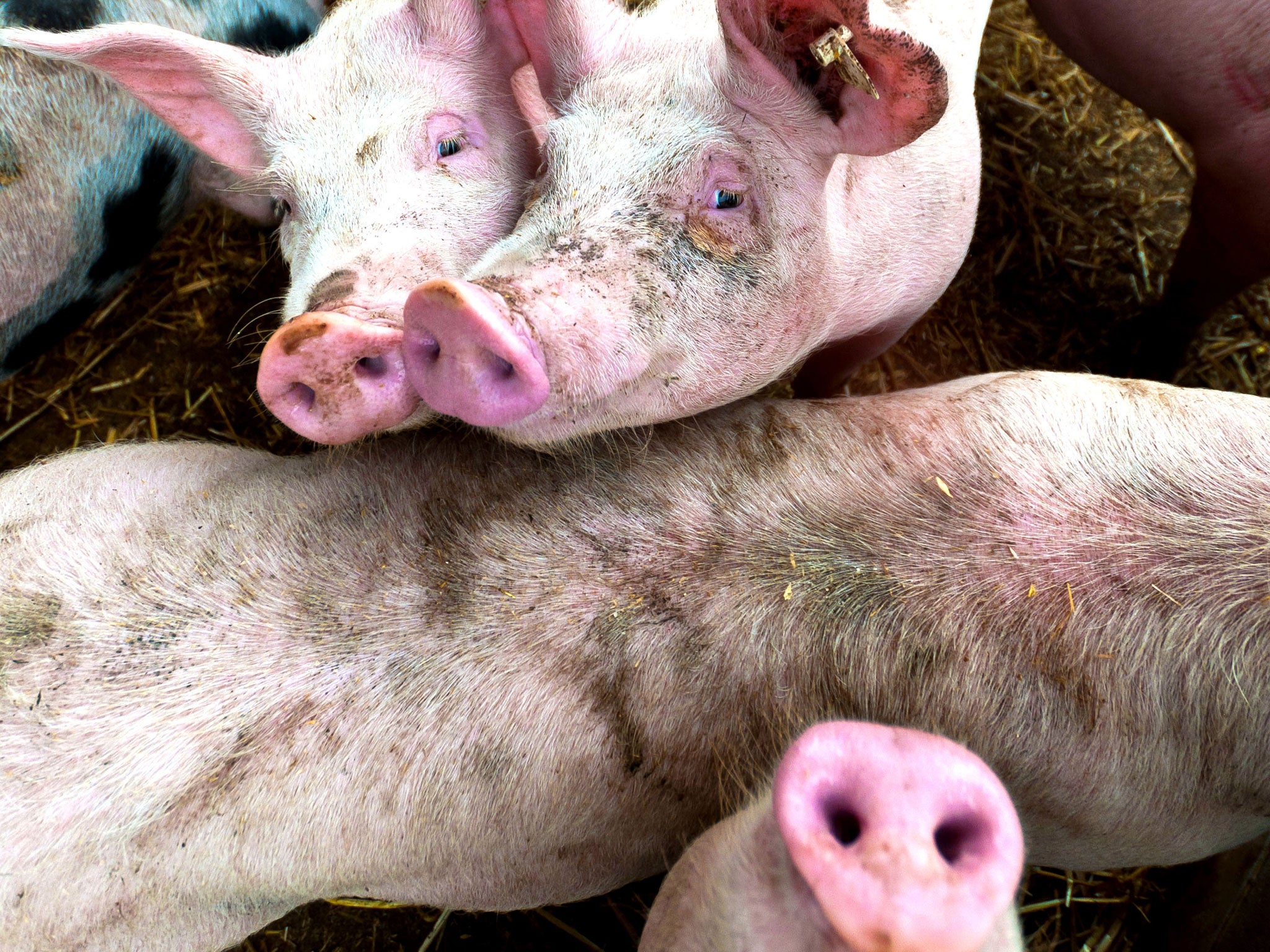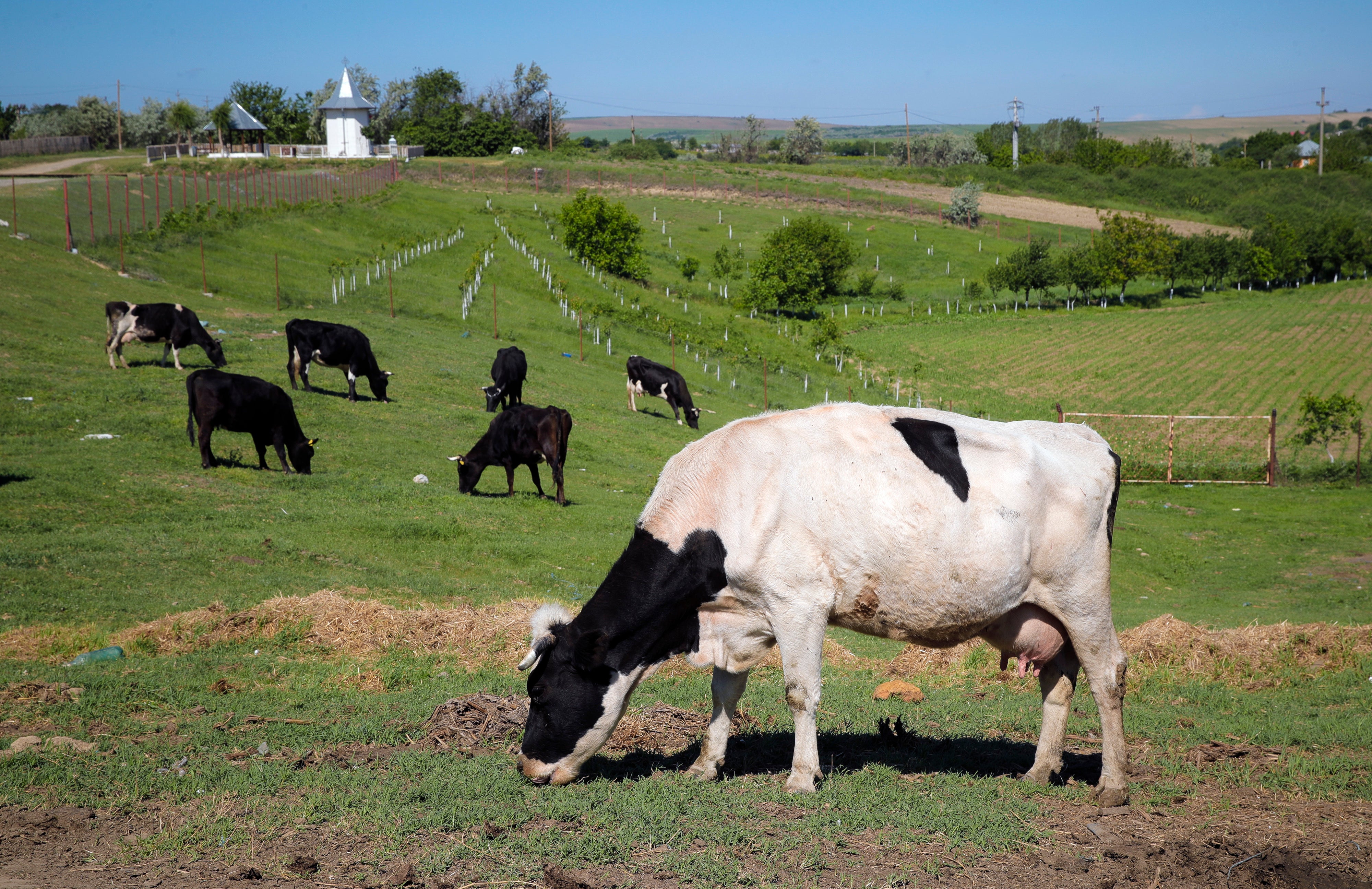Country becomes world’s first to tax flatulent cows and pigs
The country will tax for the greenhouse gases emitted by cows, sheep and pigs from 2030

Your support helps us to tell the story
From reproductive rights to climate change to Big Tech, The Independent is on the ground when the story is developing. Whether it's investigating the financials of Elon Musk's pro-Trump PAC or producing our latest documentary, 'The A Word', which shines a light on the American women fighting for reproductive rights, we know how important it is to parse out the facts from the messaging.
At such a critical moment in US history, we need reporters on the ground. Your donation allows us to keep sending journalists to speak to both sides of the story.
The Independent is trusted by Americans across the entire political spectrum. And unlike many other quality news outlets, we choose not to lock Americans out of our reporting and analysis with paywalls. We believe quality journalism should be available to everyone, paid for by those who can afford it.
Your support makes all the difference.The first country to tax farmers for flatulent livestock has been announced.
Denmark has become the first country in the world to do so as it targets a major source of methane emissions, one of the most potent gases contributing to global warming.
The country will tax for the greenhouse gases emitted by cows, sheep and pigs from 2030.
The aim is to reduce Danish greenhouse gas emissions by 70% from 1990 levels by 2030, said Taxation Minister Jeppe Bruus.
As of 2030, Danish livestock farmers will be taxed 300 kroner ($43) per ton of carbon dioxide equivalent in 2030. The tax will increase to 750 kroner ($108) by 2035. However, because of an income tax deduction of 60%, the actual cost per ton will start at 120 kroner ($17.3) and increase to 300 kroner by 2035.
Although carbon dioxide typically gets more attention for its role in climate change, methane traps about 87 times more heat on a 20-year timescale, according to the U.S. National Oceanic and Atmospheric Administration.
Levels of methane, which is emitted from sources including landfills, oil and natural gas systems and livestock, have increased particularly quickly since 2020. Livestock account for about 32% of human-caused methane emissions, says the U.N. Environment Program.
“We will take a big step closer in becoming climate neutral in 2045,” Bruus said, adding Denmark “will be the first country in the world to introduce a real CO2 tax on agriculture” and hoped other countries would follow suit.

New Zealand had passed a similar law due to take effect in 2025. However, the legislation was removed from the statute book on Wednesday after hefty criticism from farmers and a change of government at the 2023 election from a center-left ruling bloc to a center-right one. New Zealand said it would exclude agriculture from its emissions trading scheme in favor of exploring other ways to reduce methane.
In Denmark, the deal was reached late Monday between the center-right government and representatives of farmers, the industry, unions, among others, and presented Tuesday.
Denmark's move comes after months of protests by farmers across Europe against climate change mitigation measures and regulations that they say are driving them to bankruptcy.
The Danish Society for Nature Conservation, the largest nature conservation and environmental organization in Denmark, described the tax agreement as “a historic compromise.”
"We have succeeded in landing a compromise on a CO2 tax, which lays the groundwork for a restructured food industry -– also on the other side of 2030,” its head Maria Reumert Gjerding said after the talks in which they took part.
A typical Danish cow produces 6 metric tons (6.6 tons) of CO2 equivalent per year. Denmark, which is a large dairy and pork exporter, also will tax pigs although cows produce far higher emissions than pigs.
The tax is to be approved in the 179-seat Folketing, or parliament, but the bill is expected to pass after the broad-based consensus.
According to Statistic Denmark, there were as of June 30, 2022, 1,484,377 cows in the Scandinavian country, a slight drop compared to the previous year.